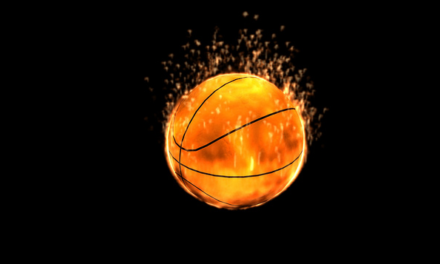So, curling. It is the obscure sport that hip people love to ironically pretend to love. I am here to tell you why I actually love it.
Just an hour ago, I overheard my Sports Co-Editor Ryan Smith talking about how much he couldn’t wait to see curling in the Olympics. Now, despite the fact that he wears cool glasses and tighter pants than me, I would not go so far as to say that Ryan is a hipster.
In fact, right after he made his statement about curling, he told a fantastic story about how when he ordered Domino’s Pizza to a party full of hipsters that he was at with Student Life Editor Jenna Kingsley, he was met with judgment and hostility from the other guests (apparently pizza is too mainstream now).
This just goes to show how far this fake love of curling has penetrated American culture.
Even my younger brother (who is admittedly much hipper than myself) pretends to love it. Hipsters, I suggest you find a new sport to ironically love.
Honestly, they probably have, and I just have not heard about it yet. But that’s beside the point. The point is, I love curling.
Not because of the beauty the game. In fact, I do not have a single clue how this game is played. My love is because of the beauty of Anna Sidorova, a Russian curler.
Seriously, just Google her. She is ravishing. Not to mention a phenomenal athlete (seriously, I am not going to mention her athletic ability because I know literally nothing about curling besides for the fact that you need a broom to play (do you even play curling?) it).
This week’s edition of On Fire describes the “giant orgy that is the Olympic Village.”
I would like to avoid such lewd discussion in the hallowed pages of the Sports Genie.
Instead, I will talk about beauty.
Let us continue with the sport of curling. The Russian team is stacked with top quality talent. How about Alexandra Saitova? Olga Zyablikova? Ekaterina Galkina?
Seriously, what is with these Russian curlers, and why are they all so beautiful?
Also, why do all of both their first and last names end with the letter a?
And that is just the Russian team. Our American ladies do our country proud as well. Figure skater Alissa Czisny, hockey player Amanda Kessel, snowboarder Clair Bidez – while I am sure that these ladies are all intelligent, interesting, passionate, driven and kind, I know from the online photo gallery titled “The 76 Hottest Female Athletes at the Sochi Winter Olympics 2014.”
Okay, that is actually all I have to say about beauty. I would now like to share with my loyal readers the excellent advice that our neighbors at Emory, the U.S. Centers for Disease Control and Prevention (CDC), issued for people travelling to Sochi for the Olympics.
They said, “Healthy habits. Always wear seatbelts. Wash your hands well and often. Drink alcohol in moderation, and use latex condoms if you have sex.”
Besides for the fact that this first sentence is a sentence fragment, lacking a verb, I think this is excellent general advice, and all of my loyal readers should follow it as much as they can.
Travelers to Sochi are particularly in need of good advice at the moment, as the situation over there is looking quite bleak.
Early reports from other journalists who are already over there describe a situation that is none too pretty.
Doorknobs are falling off doors, toilets have seats that are put on upside down and apparently, stray dogs are wandering around everywhere.
And this is not even to mention the toxic yellow water that is spewing from the sinks.
Yeah, apparently Russia is really nice this time of year.
On an utterly unrelated note, the pitchers and catchers reported to spring training on Tuesday.
As we contrast the beauty and the bleakness of the Russian Winter Olympics, it is worth taking a moment to remember the pure joy of spring that is baseball.
– By Bennett Ostdiek
The Emory Wheel was founded in 1919 and is currently the only independent, student-run newspaper of Emory University. The Wheel publishes weekly on Wednesdays during the academic year, except during University holidays and scheduled publication intermissions.
The Wheel is financially and editorially independent from the University. All of its content is generated by the Wheel’s more than 100 student staff members and contributing writers, and its printing costs are covered by profits from self-generated advertising sales.






Pizza at party — definitely worth the “judgment and hostility.”